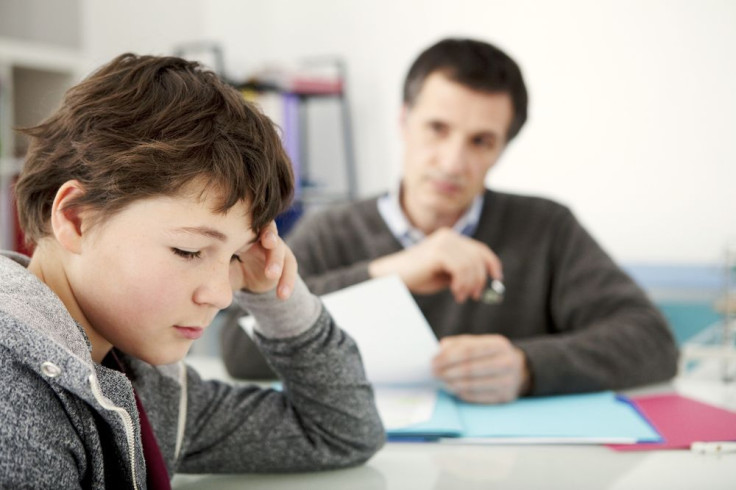Kids With ADHD Aren't Getting Enough Talk Therapy With Their Meds, Despite Its Benefits

Kids who are taught about emotional intelligence learn how to recognize their emotions when they appear, and how to regulate them in a responsible, psychologically safe way. All kids should learn about it, but perhaps more in need of learning it are kids with attention deficit hyperactivity disorder (ADHD). Although it’s a given that most kids with ADHD will get stimulant medications like Adderall and Ritalin, few undergo another important side of treatment: psychotherapy.
A new study from the RAND Corporation, being published in JAMA Pediatrics, found that there’s widespread variation in the types of treatment kids with ADHD are getting around the country. “Treatment with ADHD in children generates lots of controversy, primarily because of potential for overuse and abuse of stimulant medications,” said the study’s lead author Dr. Walid Gellad, an adjunct scientist at RAND, in a press release. “We wanted to find out among those who receive ADHD medications, how many are also [receiving] billed psychotherapy services. The answer is few, but it actually depends on where you live.”
The researchers emphasize the importance of undergoing psychotherapy along with taking stimulant meds. Stimulants are the most effective treatment for ADHD, helping a patient concentrate, control impulses, plan ahead, and follow through with tasks, but there are other psychological effects of having ADHD that pills aren’t equipped to work with. Kids with ADHD are already predisposed to developing anxiety, depression, and bipolar disorder. Even if the pills help them control episodes where they act up or speak out of line, they can still become socially awkward. Add that to the fact that ADHD is a lifelong condition, and a person may lose any optimism that they’ll get better.
Few kids get this treatment, according to the new study, which looked at the claims records for ADHD meds from over 300,000 kids aged 17 and under who lived in over 1,500 counties throughout the U.S. Among these kids, they looked at how many underwent therapy from a counselor while taking their medication. They also looked at how many psychologists lived in the counties they studied.
They found that less than 25 percent of kids who took ADHD meds spoke to a counselor during the same year. Meanwhile, 13 percent visited a therapist at least four times and seven percent visited at least eight times. Their most concerning finding, however, was that, in 200 counties, less than one in 10 kids got any therapy at all. “In areas of the country where rates of use are so low, it indicates that many kids with private insurance who could benefit from therapy are not receiving it,” Gellad said.
Even in counties where there were a good amount of psychologists, such as in Sacramento, Ca. and Miami, Fla., where there was one psychologist for each kid with ADHD, there were variations in therapy rates — 50 percent in Sacramento compared to 20 percent in Miami.
The findings are a reminder of the importance of full-fledged therapy for kids with ADHD. Psychotherapy not only helps to prevent psychiatric conditions in adulthood, but also improves a child’s cognitive and behavioral functioning. When this happens, a child is less likely to need higher doses of stimulant medications, thus helping to prevent any side effects or risks.
Source: Gellad W, Stein B, Ruder T, Henderson R, Frazee S. JAMA Pediatrics. 2014.



























